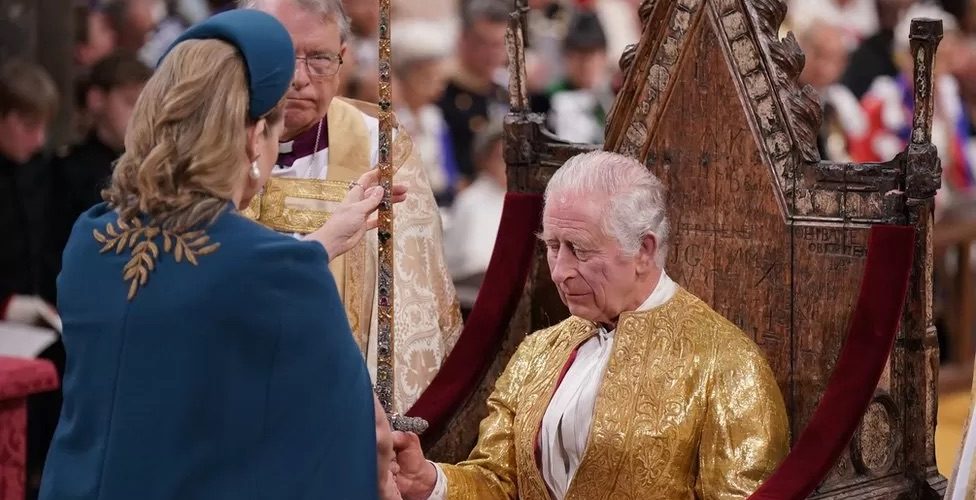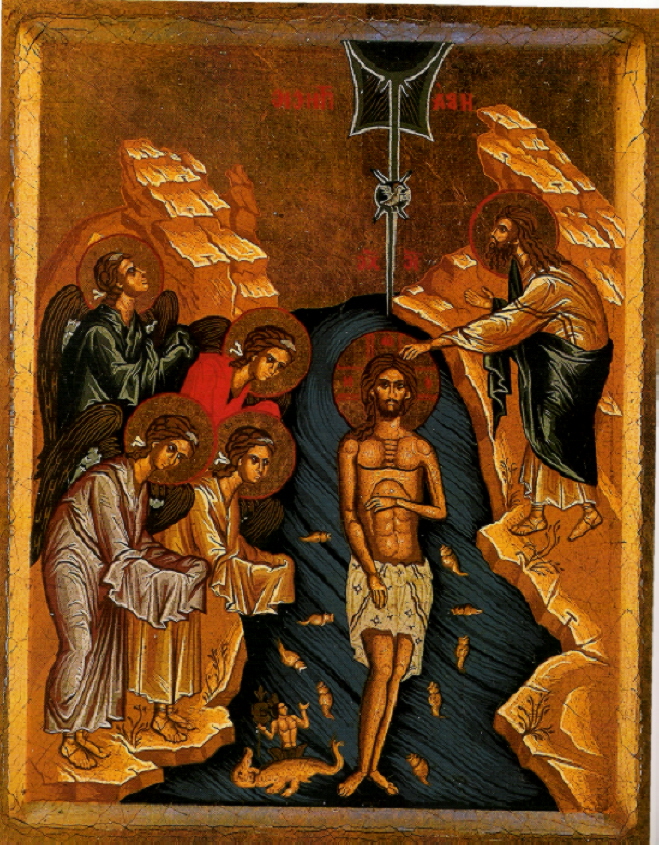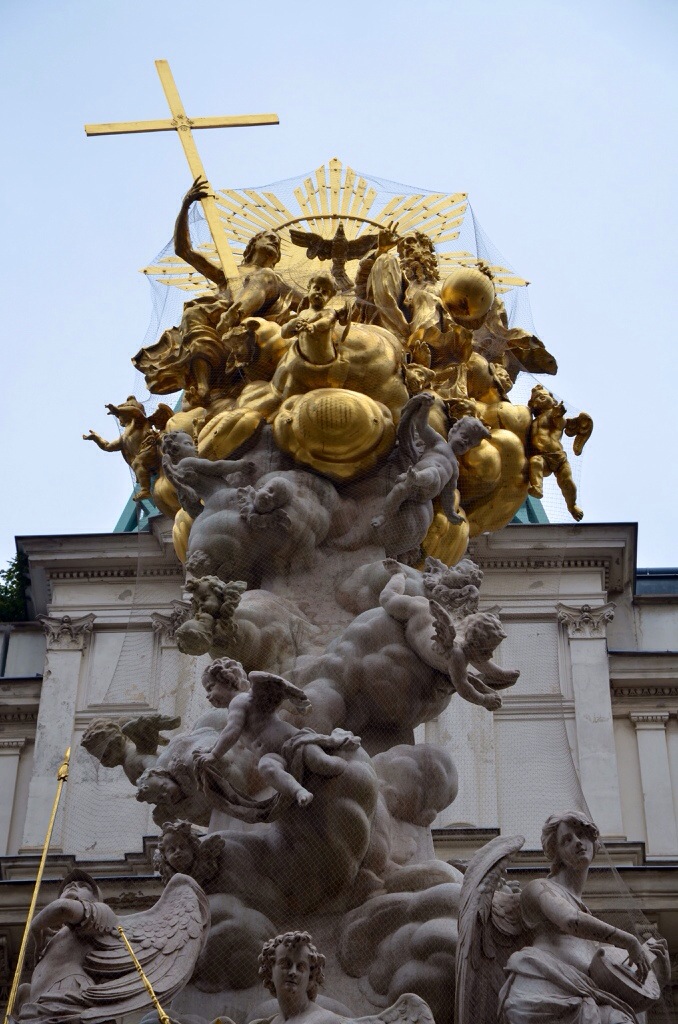A sermon for the Fifth Sunday of Easter (May 7, 2023)
Yesterday was the coronation of King Charles III, whose mother the Queen once worshipped here, in this congregation. Like many of you, I watched the service, and I was struck by a particular prayer uttered when the Archbishop of Cantebury, Justin Welby, blessed the jewelled sword (the “Sword of State” or the “Sword of Offering”) which was presented to the King by Lord President of the Privy Council Penny Mordaunt.

Receive this kingly Sword.
May it be to you, and to all who witness these things,
a sign and symbol not of judgement, but of justice;
not of might, but of mercy.
Trust always in the word of God,
which is the sword of the Spirit,
and so faithfully serve our Lord Jesus Christ in this life,
that you may reign for ever with him
in the life which is to come. Amen.
The combining of the church and the sword has always sat uneasily. Or it should. Perhaps some of you are also familiar with the story of Constantine the Great and his battle at the Milvian Bridge on 28 October 312. The church historian Eusebius tells us that, before the battle that would seal his claim to be emperor, he had a vision.
About the time of the midday sun, when the day was just turning, he said he saw with his own eyes up in the sky and resting over the sun, a cross-shaped trophy formed from light, and a text attached to it which said, “By this conquer.” (Ἐν τούτῳ νίκα).
… the Christ of God appeared to him [in a dream that night] with the sign which had appeared in the sky, and urged him to make himself a copy of the sign which had appeared in the sky, and to use this as a protection against the attacks of the enemy. — Eusebius of Caesarea, Vita Constantini, 1.28.2; 29.
Other stories recount that he had his soldiers paint crosses on their shield for protection and that he even had his soldiers baptized in the river, immersed, except for their sword bearing arm. This was how Christianity went from being the salvation of the world to become the religion of the empire. Humanity has lived with the dire consequences ever since.
In America today, we often find a striking contrast in Christian communities. On the one hand, there are those who embrace the imagery of the sword and shield, so-called “muscular Christianity,” that emphasizes the uniqueness of our country and insists that Christianity is a conquering religion that has made us strong. On the other, there are churches that emphasize that “God is love” and often seem afraid to offend others with Jesus’s own words, “I am the way, and the truth, and the life. No one comes to the Father except through me.”
Last week, I said that we must study Scripture so that we can know the voice of the Shepherd, to know God’s word and will for ourselves and our community. When we know Scripture well, we also realize that we can find examples throughout the Bible that can support a wide variety of views, almost any view. For example, there are the stories of the Old Testament, where the Spirit of God goes into battle before the Israelites to drive out the Canaanites before them. It is in that same portion of our canon that we also find the Prophets decrying the Kings and Priests in leadership, telling them that they are abusing their authority and neglecting to care for the most vulnerable in their community, including the homeless and immigrants.
By the time Jesus was born, there had been no son of David on the throne for over six hundred years, almost three times as long as the United States has been in existence. The Jewish community in Galilee and Judaea had nominal self-rule but were largely governed by the Romans. It is in that context that the New Testament was written. There we do find John urging us to “love one another, because love is from God; everyone who loves is born of God and knows God” (1 John 4:7). We also find Jesus telling us, “Do not judge, so that you may not be judged” (Matt. 7:1). It is the same Jesus who says that some will not be welcome in the Kingdom of Heaven but will be “‘thrown into the outer darkness, where there will be weeping and gnashing of teeth.’ For many are called, but few are chosen” (Matt. 21:13-14).
Ultimately, the message of Scripture is that, in the end of all things, God’s justice will be done, God’s love will reconcile humanity to himself, and it all comes to the world through Jesus’ sacrifice and our faith.
We see both sacrifice and faith in our first reading today, as we find the example of the first martyr, the first person to offer up their life, rather than give up their faith in Christ. Stephen was an early follower of Jesus who had been selected by the disciples along with six others to distribute the daily food to those who were hungry and in need, thus he is considered the first deacon, as well as the first martyr. His calling was to serve, to be humble in meeting the needs of others. He was neither a soldier nor an apostle, he was a waiter.
Stephen was brought before leaders having been charged with blasphemy and, even knowing he might well be killed by the crowd, he used that opportunity to proclaim, not just the story of Jesus, but of God’s eternal work to bring humanity back to himself. In the course of his speech, Stephen outlines the entire history of Scripture, from Abraham and Isaac to Joseph and on down to Moses. He recounts God leading Israel out of slavery in Egypt, into the wilderness and the building of the tabernacle, eventually to be replaced with the Temple built by Solomon. He concludes by quoting Isaiah who declared that nothing can contain God because, “Heaven is my throne, and the earth is my footstool” (Acts 7:48/Isa. 66:1-12).
Stephen took this moment before his impending judgment by the crowd, not to defend himself or insist that he had rights to a fair trial, but to share the message of God’s work in the world, the salvation of humanity. And in his last breath, he did not call for vindication or punishment, but mercy. “Then he knelt down and cried out in a loud voice, ‘Lord, do not hold this sin against them.’”
Stephen was following the example of his Savior who offered his own life, so that we might have life, both now and in the world to come. Our Gospel reading comes right after Jesus has washed the feet of his disciples, gave them the new commandment to “love one another as I have loved you,” and just before he is arrested. In these final moments before his own sacrifice, Jesus reassures his disciples that, although they may betray him that very night, they should not be troubled by anything the world might bring down upon them. “Do not let your hearts be troubled. Believe in God, believe also in me.”
He, the one about to be tortured and crucified, tells us to not be troubled because this world, with all of its beautiful and terrible things, is just the beginning, just the entrance into the life and home that we will ultimately have in him with the Father. “I am the way, and the truth, and the life. No one comes to the Father except through me.”
In and through Christ and him crucified we have life everlasting. In this life, in this world now, we are to love as he loved us. He loved us by washing our feet. He loved us by feeding the hungry. He loved u by healing the sick. He loved us by proclaiming the love of God and the forgiveness of our sins. He loved us by offering himself as a sacrifice for us.
He loved us by taking up the cross, not the sword.
May the cross be to us a sign and symbol not of judgement, but of justice; not of might, but of mercy. Trust always in the word of God, which is the sword of the Spirit, and so faithfully serve our Lord Jesus Christ in this life, that we may reign forever with him in the life which is to come. Amen. ✠




